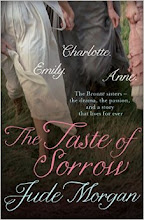This was literally pushed into my hand by a colleague I barely know, who said, "I think you'll love this," and left it with me. Initially, I sighed, as I have an ever-growing pile of books to read already, and really didn't need another. However, I took the wee thing home and placed it on top of the pile by my bed.
It so happened that I was, shortly after, heading for two days in London to see War Horse and knew that I would finish my current read on the train. I therefore wanted something light to pack, so in went The Sense of an Ending. (Yes, this might be where a Kindle comes in useful, but I will always and forever argue the other side - in this instance, not having a Kindle meant I read a book I might not have done otherwise and would therefore have missed out on.)
It is short. It is also probably worthy of the Booker, though I am no judge of judgements; it's good. It's a good book. Let me clarify 'good' - it's enjoyable, clever, re-readable, quotable. You sense a 'however', however... and the 'however' is that I simply don't have very strong feelings about it. If you were to ask me about it in six months time, I doubt I would be able to tell you very much at all, except the 'sense' that it has left me with. Ah. Perhaps therein lies its genius...
It is a book of slow reveals. When I started it, I'll be honest and say I had little to no idea what it was actually about. Essentially, then, it is about a man, retired, remembering a particular time in his life, and then being left a surprising bequest that begins to change his understanding of past events. We learn as Tony, our protangonist - or rather, not protagonist, for, as he would argue, he has never actually made anything happen, but simply allowed life to happen to him - learns, so there is no dramatic irony, no sense of superiority for the reader.
Tony, however - another however - does not do himself justice. He compares his own way of approaching life disfavourably to that of the philosophical thinkings of his friend Adrian, and yet this is a deeply philosophical work. It is as much a treatise on time and memory as it is a story, and equally a lesson for us all in the need for kindness, even when kindness might be the last emotion we feel.
There is much in the first half of the novella that reminds me of The History Boys; some sections even feel like lost scenes from that play, such are the questions posed and answers given in school lessons. It also reminded me - or at least, the characters reminded me - of some of the works of Iris Murdoch, particularly The Black Prince and The Sea The Sea, though without the vastness of the mistakes made by the protagonists ( and her characters really are that, in the truest sense of the word) in those books. More simply put? One Day for the educated older members of the reading public, perhaps.
The Sense of an Ending is a worthy book, an enjoyable book, an easy yet thoughtful book; it is a good book, and leaves one with...well, the sense that one has read and understood it.
Subscribe to:
Post Comments (Atom)


1 comment:
Great review for this book - you summarised my feelings about it exactly :-)
Post a Comment